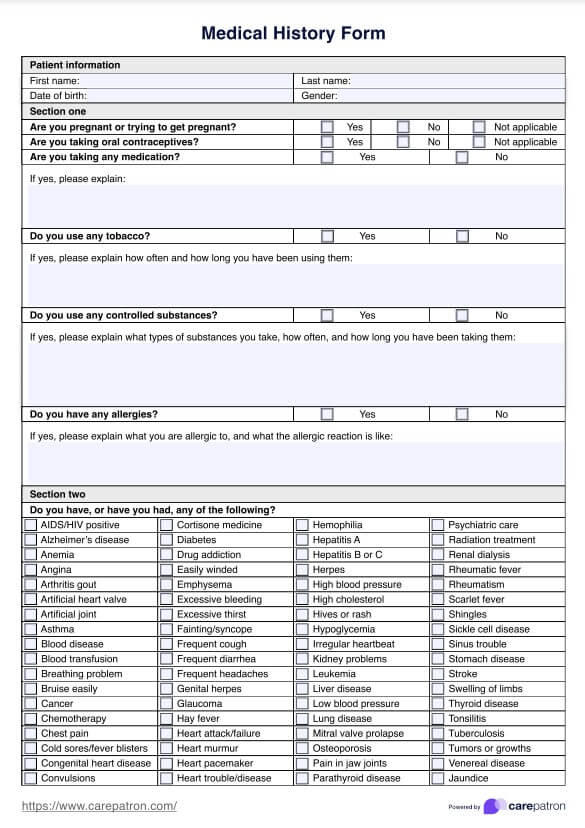Clients get a medical history by talking to their doctor about their past and current health, including any illnesses, surgeries, and medicines they take. This important information is usually shared during a conversation or by filling out forms.

Medical History Form
Download our Medical History Form to streamline patient care, ensuring all vital health information is accurate and easily accessible for effective treatment.
Medical History Form Template
Commonly asked questions
A Medical History Form should be regularly updated with any new health-related information from patient visits. Even a simple note of the date and time of the encounter is valuable. Maintaining a comprehensive record of prior appointments is crucial to avoid misinformation and ensure proper treatment. Completing an appointment without updating the medical history is a significant oversight in healthcare.
Only authorized users should have access to the Medical History Form. Clients who request to view the form should have full access to it. However, medical professionals, such as doctors, nurses, and general practitioners, will review the medical history to guide treatment. Any clinician evaluating your client, whether in another provider or organization or otherwise, needs to have access to their medical history information for sufficient assessment.
EHR and practice management software
Get started for free
*No credit card required
Free
$0/usd
Unlimited clients
Telehealth
1GB of storage
Client portal text
Automated billing and online payments











